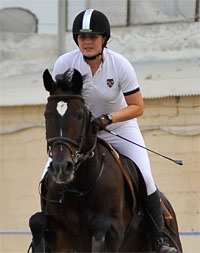The thousands of blue-clad fans singing
and dancing along the streets of London celebrating their team’s European
triumph were hotly debating whether their side is the best Europe has ever
seen.
Many argued that their side showed a style
and flair rarely seen in the modern game, with the performance of senior
players belying earlier concerns about ageing limbs.
Others spoke passionately about their
club’s place of belonging in the local community and ability to nurture young,
local talent and turn them into genuine world-class performers.
Despite the heroics of Roberto Di Matteo
and his men, surely the most ardent of Chelsea fans cannot think I am referring
to their epic achievement!
I am actually referring to the magical
hordes of Leinster supporters who were among the record 81,000 Twickenham crowd
at the Heineken European Cup final who witnessed the most remarkable
performance from their side in this all-Irish denouement to the European
season.
Not only did Leinster rack up the highest
number of points in a final (42), largest winning margin (28) and most tries
(5), but they did so against a side that can genuinely consider themselves to
be the second best team in the competition. Ulster worked their way through the
‘Group of Death’ in the preliminary stages, overcoming Clermont Auvergne and
Leicester before dispensing with Munster and Edinburgh in the knock-out stages.
The reality is that few thought this final
would end with any other result. Ulster, under current coach Brian MacLaughlin,
have failed to win any of their matches against Leinster. The manner of their
victory merely emphasises the gulf between Leinster and all comers at this
stage.
Statistically, Toulouse have a higher
total of European championships, although their four titles have been secured
over a longer period of time and six finals. Leinster’s third title was secured
in four years, this latter ensuring they become the first team since Leicester
to secure back-to-back triumphs.
Given the home and away nature of this
competition it is also remarkable that they have gone 15 matches unbeaten since
losing last to Clermont in the group stages of last season’s competition –
their worst result being an away draw in France.
They become the only side in 17 years of
the Heineken Cup to go an entire season without defeat.
Wasps boast a 100 per cent record from
their two finals, Leicester have three wins from five finals while Munster secured
safe passage from the group stages for 12 consecutive years while winning two
of four finals.
However, it is Leinster that appears to be
re-defining the boundaries. Many had thought that the only way to defeat
Leinster would be for Ulster to bully them into submission. However, in their
semi-final when they overcame Clermont away at Bordeaux they proved they were
capable of winning attritional rugby.
Ulster tried to take a high-tempo
attacking game to Leinster although were repelled with fierce tackles that
formed a foundation for swift counter-attacks.
Ulster turned to a kicking game yet Rob
Kearney was assured under the high ball and devastating on the return.
Brian O’Driscoll, returning only eight
days after knee surgery, produced several subtle and sumptuous offloads, Sean
O’Brien – the man of the match – was hugely influential in marshalling the
defence and driving the attack while Johnny Sexton produced an intelligent
pivot alongside O’Driscoll and precision kicking to enhance Leinster’s lead.
They have a system that allows forwards to
interchange with the backs almost seamlessly, each individual being given the
opportunity to demonstrate their individual instinct – all within a collective
system.
Yet the beauty to this Leinster side is
not just in the breathtaking and expansive rugby in attack, the ability to also
hit back with a smoother defence and counter-attack with incisive speed – it is
in the consistency they have produced domestically and in Europe.
Having secured their third European crown
they have another cup final this coming weekend as they aim to secure the Rabo
Pro 12. After 22 matches they topped the table by 10 points (two wins) from the
team they will face in the final – the Ospreys.
They have achieved this by using an
incredible 49 players this season, showcasing the tremendous strength in depth
they have created by developing local talent and integrating it into a thriving
and successful structure while blending this with their Irish and foreign
internationals.
Indeed their captain, Leo Cullen, is a
home-grown player who returned from several years learning his trade at
Leicester.
Yet despite being comprehensively crowned
as European champions last weekend a word or two of caution! Last year Leinster
returned from European triumph over Northampton only to lose to Munster in the
Rabo 12 final.
This year they face an improving Osprey’s
side who comprehensively thumped Munster 45-10 in the semi-final. Ospreys also
account for two of Leinster’s three Rabo 12 defeats earlier in the season.
However, the ability to put two titles ‘in
the bag’ – as with Chelsea – should be a tremendous motivator.
Their talismanic centre, Brian O’Driscoll
(in BOD we trust), has already spoken about this team’s dynasty. Yet, one
suspects, the real motivator over the summer will be the prospect of playing
for a third successive European crown at ‘home’ in Dublin’s Aviva Stadium. Even
then it’s not just about what they win, but how they win.










